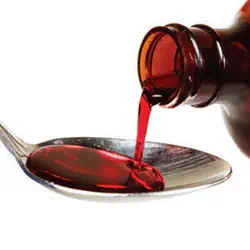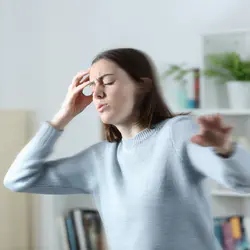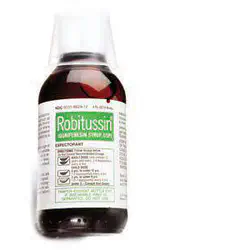DRUGS: WHAT YOU
NEED TO KNOW Booklet

Signs and Symptoms of Dextromethorphan Addiction

Dextromethorphan is one of the drugs typically abused by teens and young adults more than older adults. Products containing dextromethorphan (abbreviated DXM) may be easily available to teens, as they are sold over the counter in drugstores or may be found in a home medicine cabinet.
Information and instructions on how to abuse DXM are found on many websites that tell young people how much DXM to consume to get to one of four “plateaus” of intoxication. The first plateau is described as “mild intoxication.” The fourth plateau is “dissociative sedation.”1

Courtesy of DEA.gov
DXM products in the form of capsules, tablets or syrups may simply be ingested or they may be mixed with soft drinks. It is a common practice to consume DXM products along with marijuana or alcohol.
While there are a few types of cold medication that people misuse for their psychoactive effects, DXM seems to be the most popular. In 2021, 2.7% of eighth, tenth and twelfth-grade students said they had misused a cough or cold medicine. This is a considerable decline from 2006 when 5.2% of these students had done so. Use was most frequent among eighth-graders, with 3.5% of these students reporting use.2
Physical Signs of Dextromethorphan Addiction
Youth or adults abusing a product that contains dextromethorphan are seeking to create sensations like these:
- A high similar to that of ecstasy
- Distortions of color and sound
- Hallucinations
- The feeling of being “out of their body”
- Altered time perception
- Hyperexcitability
Not all the sensations that result from DXM abuse are particularly desirable or pleasant. Like these, for example:

- Dizziness
- Lethargy
- Memory problems
- Numbness of fingers and toes
- Drowsiness
- Fever
- Nausea
- Vomiting
- Stomach pain
- High blood pressure
- Loss of control of body movement
- Slurred speech
- Dissociation
These unpleasant side effects can be more severe if the person abuses a DXM product at the same time that they consume alcohol or illicit drugs.
The Drug Enforcement Administration notes that DXM has a similar action to LSD, PCP or ketamine. Chemically, it has some similarities to opioids and was at one time classified with those drugs.3
DXM is present in more than a hundred over-the-counter medications, though more than 20 states have banned the sale of DXM products to anyone under 18 years of age. But youth who have no trouble getting someone to buy them alcohol undoubtedly have little difficulty getting someone to buy DXM products for them.
Dextromethorphan products can be addictive and cause withdrawal symptoms when use ceases.

Courtesy of DEA.gov
Brand names like Robitussin, Triaminic, Vicks DayQuil, Alka-Seltzer, PediaCare and dozens of other products contain dextromethorphan. Many of these products are labeled with a “DM” to indicate the presence of this drug.
Youth referring to the abuse of DXM may use these terms: CCC (short for Coricidin Cough & Cold), Dex, DXM, Poor Man’s PCP, Robotripping (a reference to Robitussin) or Skittles.
Behavioral and Emotional Signs of Dextromethorphan Addiction
A person who has become addicted to dextromethorphan will neglect their responsibilities at home, or at work or school. They are very likely to become secretive and evasive as they start telling lies to cover the reason for problems like missing money, slurred speech, poor memory, nausea or other symptoms of use. They may want to keep people out of their room or prevent a search of their backpack or other possessions. Sometimes, the way a family discovers addiction to DXM is by seeing multiple cough medicine bottles in the trash, a backpack, car or other private location.
The Physical Damage of Dextromethorphan Addiction
A person suffering from dextromethorphan toxicity may experience high blood pressure and fast heart rate, psychosis or toxic muscle breakdown (rhabdomyolysis) and require emergency medical care.4
Dextromethorphan Overdose
These are the effects that may be seen when a person consumes too much dextromethorphan:
- Changes in vision
- Rapid heartbeat
- Panic attacks
- Delusions
- Muscle rigidity
- Psychosis
- Violent behavior
- Respiratory depression
- Seizures
- Altered mental status
- Rhabdomyolysis (muscle tissue breakdown)
- Coma
High dosages of DXM are toxic to the cardiovascular system and central nervous system. It is possible to die from an overdose of DXM when it is combined with alcohol or other drugs. Combining DXM with antidepressants can be especially dangerous.
A person misusing this drug experiences risks not only from the DXM but also from the acetaminophen that is also present in many formulas. High quantities of acetaminophen are toxic to the liver. Another common cold remedy ingredient, guaifenesin, can cause nausea and vomiting in large doses, such as those consumed by a person abusing or addicted to DXM formulas.
Withdrawal from Dextromethorphan
It may be necessary for a person who has been abusing dextromethorphan over a long duration to seek support from professionals to sustain them through withdrawal from this drug. They are likely to experience strong cravings, sweating, rapid heart rate, nausea and high blood pressure.
Freedom from dextromethorphan addiction is vital if a person is to enjoy a happy, healthy life and achieve the goals that are important to them. Help is available for a person who wants to break free from DXM addiction.
Sources:
-
National Institute on Drug Abuse. “Over-the-Counter Medicines.” NIDA, 2017. NIDA Article ↩︎
-
Monitoring the Future. “Key Findings on Adolescent Drug Use.” MTF, 2022. MTF Publication (PDF) ↩︎
-
SAMHSA. “Key Substance Use and Mental Health Indicators in the United States: Results from the 2020 National Survey on Drug Use and Health.” Substance Abuse and Mental Health, 2021. SAMHSA Publication (PDF) ↩︎
-
National Institutes of Health. “Dextromethorphan Toxicity.” NIH, 2021. NIH Article ↩︎


 ®
®
